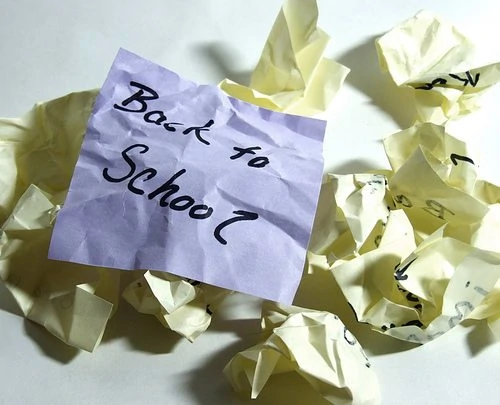It’s that time of year again. Despite nature’s call to slow down and hibernate, we tend to speed up and do more. Holiday commitments, family travels, the end of school terms and corporate years, shopping, family expectations and dynamics – it all adds up to a lot of extra stress!
Not that we’re unfamiliar with stress the rest of the year, right? It’s a regular component in our lives, holiday season or not. As a yoga teacher working with over 100 people a week, and as a small business owner, I’m in a unique position to see how we deal with stress, what strategies work and where the pitfalls are.
One of the things both Lynea and I have grown to appreciate is how vital it is that adults learn how to take care of stress so we can model appropriately for the young people in our lives. No list of fancy yoga poses, props or techniques really matter if the teacher isn’t grounded or connected to him- or herself.
For a complete understanding of stress and its effects, I highly recommend Robert Sapolsky’s book Why Zebras Don’t Get Ulcers. It’s accessible, even entertaining and, of course, extremely useful. Keys to reducing stress, writes Sapolsky, include
- Positive thinking
- Social affiliation
- Outlets through which to channel frustrations
- Rest, quality sleep & nutritious food
But one thing matters more than all these: creating a sense of control.
Change the way even a rat perceives its world and you dramatically alter the likelihood of its getting a disease. These ideas are no mere truisms. They are powerful, potentially liberating forces to be harnessed. As a physiologist who has studied stress for many years, I clearly see that the physiology of the system is often no more decisive than the psychology.
All five of these factors figure into some tips Lynea and I want to share with you to help you keep stress in check through this holiday season and beyond:
Just Say No!
It’s all too easy to over-commit ourselves, especially during the holidays! So why not make it easier on yourself – and others? Consider scheduling your work party earlier in December – or better yet, in January, when people can really appreciate the break. Ask friends to do the same, spreading out celebrations over a few months. School calendars make family commitments a bit tougher, but we know several families that gather at other times of the year, such as birthdays, graduations and special anniversaries. When all else fails, it really is okay to just say “no” for now and schedule something for later.
One Thing at a Time – Please!
Multitasking creates the illusion of productivity while compounding stress. Yet the demands of our 24/7 culture of e-connectivity easily generate the sense that we must always be “on” or available and make multitasking seem inevitable. One simple way to regain focus is to take control of your media gadgets. Why not devote time first thing each day – before checking voice mail and Facebook and email and texts – to work on important things? Set boundaries. Consider unplugging completely at least one day a week. Block off time for more “immersive” experiences in which you do one activity mindfully and with intent. This can really improve productivity and refresh the brain!
Sleep Better
The more plugged-in we are, the less quality sleep we get. Sleep researchers and groups like the National Sleep Foundation recommend turning off electronic media several hours before bedtime. We know of families where everyone has to turn off and leave their phones on the counter by a certain time each night, which reduces at least one distraction for teens doing their homework on a computer. And with the media you do use, be choosy! Don’t just consume what’s there because it’s there. Watch, read, listen to or interact with media that matters to you and, ideally, leaves you with positive feelings afterwards.
An Hour of Sleep Before Midnight…
You know the old maxim that gaining an hour of sleep before midnight is equal to gaining two hours after? It’s probably true. That extra 30 minutes or hour of late-night TV-watching we “treat ourselves” is the opportunity-cost of time the next morning when we exercise, read for enjoyment, work on a creative project or enjoy a good breakfast. So turn off the tube and turn on your life. Here are some other sleep hygiene tips.
Set Expectations, Give Choices
With family budgets tight and media-fueled expectations high, responding to your kids’ wish lists can be tough. Why not try giving them a choice between gifts on their list? Or take the opportunity to teach budgeting: Tell them something like “Santa is on a budget this year,” and ask them to make a list of the things they can get with X dollars. This gives them a sense of control, maintains your role as parent and helps you avoid breaking the bank. Forming holiday budget agreements with ex-spouses can also help avert the “bidding wars” that can accompany divorce.
Establish Your Health Momentum – Now
The combination of inclement weather, seasonal demands and sugary holiday treats can wreak havoc on health. So this year, my New Year’s resolution was to get more exercise in the fall. Even just a 15 minute walk outside or indoor spin on my stationary bike has done wonders for my attitude, with the added blessing of good time to think about and process all else that’s going on. (And the best benefit? I can now eat those holiday sweets with impunity!) When the average American adult spends about two hours daily in front of the TV, is there really such excuse as “I don’t have time”?
Image by alancleaver_2000, via Flickr






